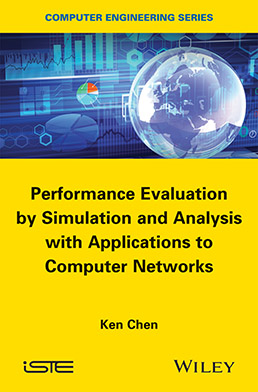
The performance of a computer network is among the key elements that determine its operational quality; performance evaluation cannot be only treated empirically.
This book presents the two most commonly used methodologies for performance evaluation in computer networks: simulation using specialized software and mathematical modeling. A large part is dedicated to simulation, especially within its theoretical framework, and the precautions which need to be taken in the implementation and experimental procedure.
These principles are illustrated by concrete examples realized through the OMNeT++ simulation framework.
The mathematical method (queueing theory, Markov process) is presented as an indispensable complementary approach to simulation. Both methodologies are based largely on the theory of probability, and statistics. A reminder of the basic results is also available.
1. Performance Evaluation.
Part 1. Simulation
2. Introduction to Simulation.
3. Modeling of Stochastic Behaviors.
4. Simulation Languages.
5. Simulation Running and Data Analysis.
6. OMNET++.
Part 2. Queueing Theory
7. Introduction to the Queueing Theory.
8. Poisson Process.
9. Markov Queueing Systems.
10. The M/G/1 Queues.
11. Queueing Networks.
Part 3. Probability and Statistics
12. An Introduction to the Theory of Probability.
13. An Introduction to Statistics.
14. Markov Process.
Ken Chen is Full Professor at the Paris 13 University, France. His research interests include communications, broadband and sensor networks with a focus on quality of service and allocation and control of resources on networks both wired and wireless.